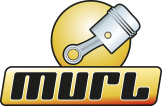The add-on interface. More...
#include "murl_i_addon.h"
Public Member Functions | |
| virtual String | GetName () const =0 |
| Get the addon's name. More... | |
| virtual Bool | Configure (IEngineConfiguration *engineConfig, IFileInterface *fileInterface)=0 |
| Configure the addon. More... | |
| virtual Bool | RegisterCustomFactoryClasses (IAppFactoryRegistry *factoryRegistry)=0 |
| Register custom factory classes with the engine. More... | |
| virtual Bool | UnregisterCustomFactoryClasses (IAppFactoryRegistry *factoryRegistry)=0 |
| Unregister custom factory classes from the engine. More... | |
| virtual Bool | RegisterCustomModuleClasses (IAppModuleRegistry *moduleRegistry)=0 |
| Register custom module classes with the engine. More... | |
| virtual Bool | UnregisterCustomModuleClasses (IAppModuleRegistry *moduleRegistry)=0 |
| Unregister custom module classes from the engine. More... | |
| virtual Bool | Init (const IAppState *appState)=0 |
| Initialize the add-on. More... | |
| virtual Bool | DeInit (const IAppState *appState)=0 |
| Deinitialize the add-on. More... | |
Detailed Description
The add-on interface.
An add-on represents an optionally linkable component that can be used to extend the engine's functionality, e.g. the Facebook integration.
Member Function Documentation
◆ GetName()
|
pure virtual |
Get the addon's name.
- Returns
- The addon's name.
◆ Configure()
|
pure virtual |
Configure the addon.
This method is called by the engine right after IApp::RegisterCustomAddonClasses() is called, in order to apply any add-on specific settings to the engine and/or app configuration. Note that this is happening after IApp::Configure() gets called, so these settings are not yet available in during IApp::Configure().
- Parameters
-
engineConfig The engine configuration object. fileInterface The file interface object.
- Returns
- true if successful.
◆ RegisterCustomFactoryClasses()
|
pure virtual |
Register custom factory classes with the engine.
This method is used to register custom factory classes specific for this add-on, and it is called by the engine core right before its counterpart IApp::RegisterCustomFactoryClasses().
- Parameters
-
factoryRegistry The main registry to access individual factory registries.
- Returns
- true if successful.
◆ UnregisterCustomFactoryClasses()
|
pure virtual |
Unregister custom factory classes from the engine.
This method is called by the engine core right after IApp::UnregisterCustomFactoryClasses().
- Parameters
-
factoryRegistry The main registry to access individual factory registries.
- Returns
- true if successful.
◆ RegisterCustomModuleClasses()
|
pure virtual |
Register custom module classes with the engine.
This method is used to register custom module classes with any of the registries provided by the moduleRegistry parameter to provide extensions to different engine modules, such as audio/video renderer objects or physics objects. It is called right before its counterpart IApp::RegisterCustomModuleClasses().
- Parameters
-
moduleRegistry The main registry to access individual module registries.
- Returns
- true if successful.
◆ UnregisterCustomModuleClasses()
|
pure virtual |
Unregister custom module classes from the engine.
This method is called by the engine core right after IApp::UnregisterCustomModuleClasses().
- Parameters
-
moduleRegistry The main registry to access individual module registries.
- Returns
- true if successful.
◆ Init()
Initialize the add-on.
This method is called by the engine core for add-on initialization, immediately before the application is initialized. See IApp::Init().
- Parameters
-
appState The application state object.
- Returns
- true if successful.
◆ DeInit()
Deinitialize the add-on.
This method is called by the engine core for application deinitialization, immediately after the application is de-initialized. See IApp::DeInit().
- Parameters
-
appState The application state object.
- Returns
- true if successful.
The documentation for this interface was generated from the following file:
- murl_i_addon.h
